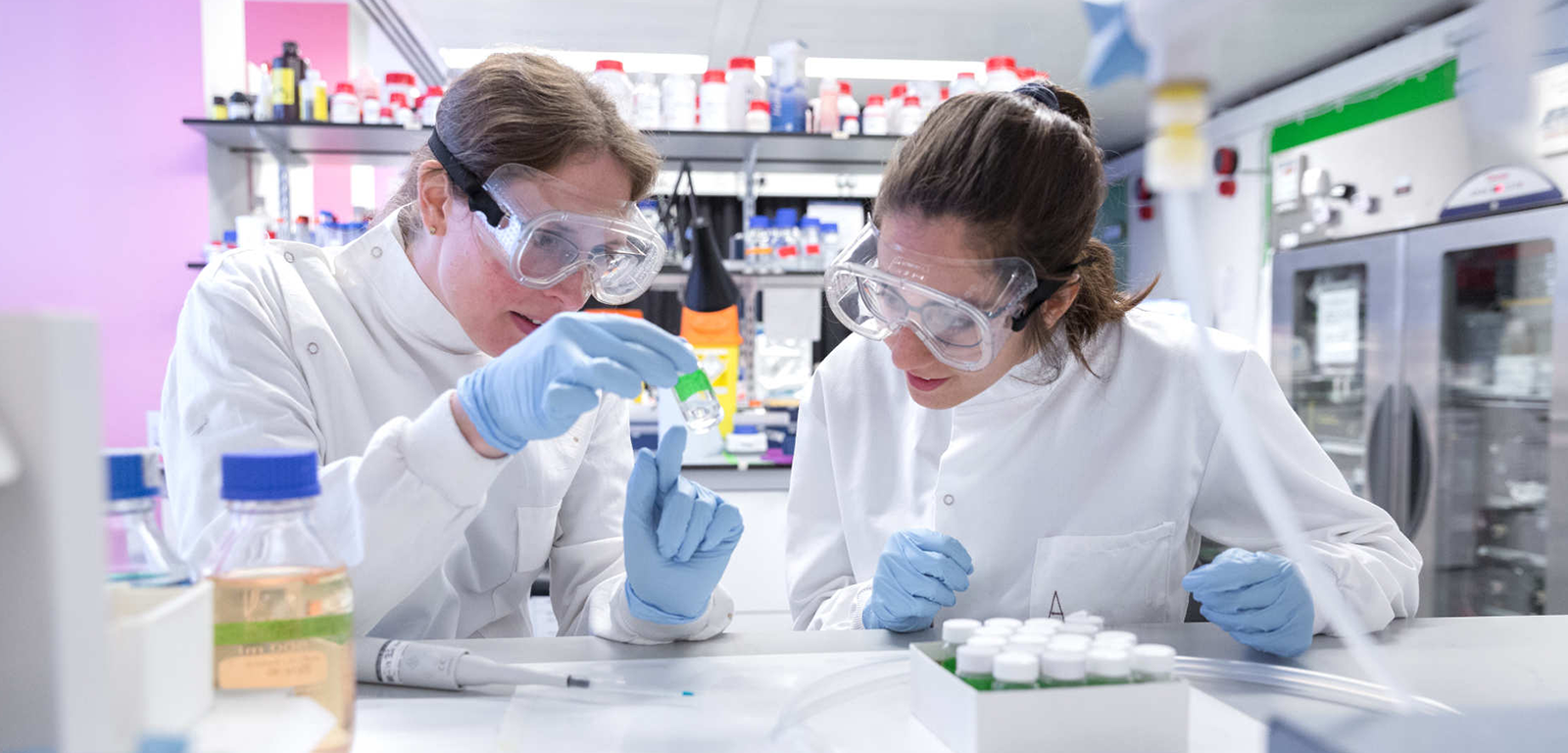

* Equipment (boiler suit)
Molecular Bioengineering considers how we might engineer biological systems to solve challenges in health and wellbeing.
Through this course, you will develop the scientific understanding and laboratory expertise of a life-scientist with the technical knowledge and problem-solving skills of an engineer.
With this unique combination of skills, you will be well placed to address the global challenges of today: health and well-being agenda, personalised medicine, new biomedical technology industries.
You will gain a theoretical understanding through lectures, study groups and taught classes. During practical wet and dry labs and activities, you will work on real-world projects in medicine and biology with life-changing potential.
Our graduates have the ability to become leaders in their chosen areas. This programme is designed to develop your leadership, communication and teamwork skills, introducing you to professional standards and developing your understanding of engineers’ obligations to society, the profession and the environment.
More information:click here
Year 1
You take all of the core modules from the list below.
Molecules and Energetics 1
Medical and Biochemical Science 1
Mathematics and Engineering 1
Computer Fundamentals and Programming 1
Design and Professional Practice 1
Year 2
You take all of the core modules from the list below.
Molecules, Materials and Measurement 2
Medical and Biochemical Science 2
Mathematics and Engineering 2
Programming 2
Design and Professional Practice 2
Year 3
You take all of the core modules from the list below.
MEng Group Project
Biomaterials
Foundations of Synthetic Biology
I-Explore
Modelling in Biology*
Your I-Explore module offers you choices from a range of subjects hosted outside of the department. Here you will be taught alongside students from other courses with options including business, management and many more.
Optional modules
You choose three optional modules from below.
Image Processing
Digital Biosignal Processing
Programming 3
Human Centred Design of Assistive and Rehabilitation Devices
Tissue Engineering and Regenerative Medicine
Advanced Imaging Technologies for Systems Biology
Communicating Biomedical Science and Engineering
Hearing and Speech Processing*
Biomimetics*
* Modules marked with an asterisk are level 7 modules. You will need to complete a minimum number of level 7 modules by the end of your degree.
Year 4
You will spend this year working in industry, applying your knowledge in a practical setting.
Year 5
In your final year, you will spend 6 months exclusively working on a substantial Individual Project.
This individual project will be hosted within a research group and allows you to gain an understanding of the latest developments in the Bioengineering field as well as develop your ability to work independently.
Optional modules
You choose four optional modules from Group 1 and one from Group 2.
Modules that appear in both groups may only be taken once.
Group 1
Advanced Synthetic Biology*
Advanced Chemical Sensors*
Advanced Physiological Monitoring and Data Analysis*
Principles of Biomedical Imaging*
Tissue and Molecular Imaging*
Cellular and Molecular Mechanotransduction*
Animal Locomotion and Bioinspired Robotics*
Medical Device Entrepreneurship*
Hearing and Speech Processing*
Biomimetics*
Group 2
Medical Device Entrepreneurship*
Business for Professional Engineers and Scientists
* Modules marked with an asterisk are level 7 modules. You will need to complete a minimum number of level 7 modules by the end of your degree.

Alongside a breadth of core engineering and biomedical engineering knowledge, graduates of this course gain a specialist understanding of biochemical, physiological and biological processes allied to excellent advanced laboratory skills in chemical biology, molecular biology, synthetic biology, analytical sciences, microfluidics and device engineering.
These unique skills will ensure graduates are well-placed to help address the global challenges of health and well-being.
Our degrees will not only prepare you for a career in the rapidly growing field of biomedical engineering, but also provide a foundation for careers in life sciences and pharmaceuticals, biotechnology and synthetic biology, regenerative medicine and cell therapy and opportunities arising as a result of new tools of data analysis, genomics sequencing, artificial intelligence and mathematical modelling.
Graduates from the Department of Bioengineering are making an impact in many fields and across a range of industries and organisations:
Starting businesses which have brought new tools and techniques to: dialysis (Stentek), waste water treatment (CustoMem) and wearable devices (Blocks)
Developing new medical devices for large and small companies in the UK and internationally (Team Consulting and Cambridge Consultants)
Engineering drug delivery devices for effective and safe treatment of patients
Development of new scientific instrumentation to help life science companies develop drugs and products for patients and clinicians
NHS Science and technology roles such as clinical engineers, bioinformaticians, medical physicists and rehabilitation engineers
PHD students and academics in universities around the world addressing key health challenges with cutting edge scientific and technological research
Life Science Consulting, helping medical technology and pharmaceutical companies bring their products to market
Medicine, following the Graduate Entry into Medicine programme
Solicitors and patent attorneys protecting the intellectual property of researchers and businesses
In industries and organisations beyond life sciences and medical technology where the analytical, quantitative and problem solving skills of Imperial Bioengineers are hugely valued

Insurance-Single::£300/year